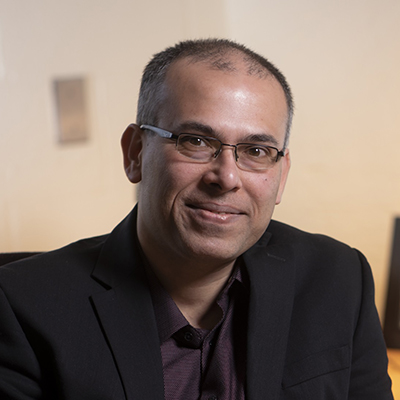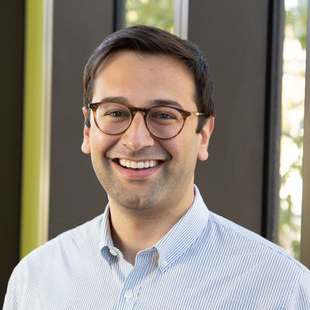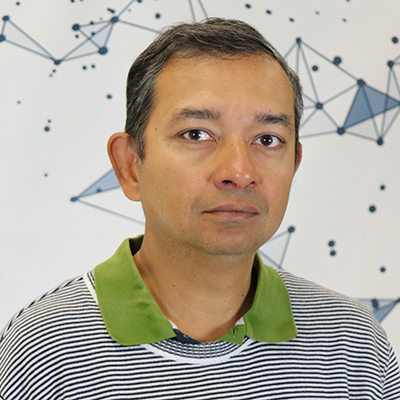Instructions for breakout experts:
For the breakout session, please email the panel moderator (Prof. Somali Chaterji) your Google slides link (shared with: somalichaterji@gmail.com) (with the email subject: NSFCPS24) the night before with a cc to Jason Gigax (jason.w.gigax@vanderbilt.edu)
Template: https://docs.google.com/presentation/d/15x8ohc8z5SmgI5h_RzduIrG4wU6P5WY1T_sqjGhcNPo/edit?usp=sharing
You don't need to get your own computer for presenting since we are in the SLC ballroom. The moderator will have all the presentations compiled to save time so be sure so send the link the night before (03/20).
Goal: CACM article on Secure and Robust Learning for IoT
(or IoST, Internet of “Small” Things)
Abstract
As the digital tapestry of the Internet of Things (IoT) continues to expand, a distinct yet interconnected realm known as the Internet of Small Things (IoST) emerges, challenging the traditional boundaries of data security and algorithmic robustness. This domain, populated by compact IoST with outsized roles, operates at the intersection of ubiquitous computing with granular data collection. These devices serve as microscopic sentinels of our digital and physical worlds. Their operation underscores a vital need for learning algorithms that are not only effective in deciphering the noisy backdrop of real-world data but are also fortified against cybersecurity threats. This requirement is accentuated by their increased vulnerability within decentralized networks, coupled with the inherent computational constraints of these devices.
This discussion will explore the development and implementation of learning solutions that cater to the unique demands of IoST devices. It focuses on creating algorithms that are efficient, able to cope with the challenges of processing high volumes of data on hardware with restricted capabilities and embedding security measures from the ground up. The aim is to enhance the functionality and safeguard the integrity of these devices, ensuring that they can reliably perform their roles in the vast IoT ecosystem. By addressing these aspects, the conversation seeks to provide insights into advancing IoST, highlighting the importance of secure, robust learning technologies that support the seamless integration and operation of these tiny devices in various cyberphysical (CPS) applications.
Sub-Topics
Learning for Small and Noisy Devices: Somali Chaterji
This topic focuses on the challenges and innovations in implementing learning algorithms on small, resource-constrained, heterogeneous devices that operate in environments with high levels of noise and uncertainty. It explores techniques for designing robust learning models that can efficiently process and make sense of imperfect data, ensuring reliable performance despite hardware limitations and external disturbances. The discussion includes adaptive algorithms, noise-tolerant learning methods, and the optimization of computational resources to enhance the intelligence of small CPS devices, think IoST (Internet of Small Things). [Ideas: learning from noisy data, learning from little labeled data, learning on heterogeneous devices, learning on small/unreliable devices.]
Closing the Loop for Cyber and Physical Systems: Samarajit Chakraborty
Here, the emphasis is on creating seamless integration between the cyber aspects (computing, communication, and control) and the physical components (machines, environments, and human interactions) of CPS. This involves developing methodologies that allow for real-time feedback and adaptive learning mechanisms to fine-tune system behaviors based on physical world inputs. The topic covers the theoretical and practical aspects of achieving this symbiosis, including real-time data analytics, predictive modeling, and the use of digital twins to simulate and optimize CPS operations. [Ideas: digital twins, closing the loop]
Scalable Learning and Safety-Critical Learning in Mixed Criticality Systems: Tichakorn (Nok) Wongpiromsarn, Luca Carlone
This topic delves into the dual challenges of scalability and safety in learning-enabled CPS, particularly those operating under mixed criticality, where systems must manage tasks with varying levels of importance and safety requirements. It discusses strategies for scaling learning algorithms to accommodate growing data volumes and system complexities without compromising response times or operational integrity. Additionally, it addresses the design of learning systems that prioritize safety, ensuring that CPS can make decisions that protect human lives and physical assets, even in the face of unforeseen situations or data anomalies. [Ideas: mixed criticality, fail-safe algorithms, graceful degradation]
Federated Learning for Cyber-Physical Systems: Saurabh Bagchi
Federated learning (FL) represents how learning models are trained across distributed CPS devices without centralizing data, thus preserving privacy and reducing data transmission requirements. This topic highlights the potential of FL to enhance collaborative learning among devices while maintaining data sovereignty and security. It examines the architectural and algorithmic challenges involved in deploying federated learning in diverse CPS contexts, from industrial IoT to autonomous vehicles, and discusses approaches to ensure efficient, secure, and reliable model training and inference across decentralized networks. [Ideas: Use cases for FL for CPS, new architectures for FL, is FL private?]
Adaptive Learning Strategies in Dynamic and Strategic Environments: Eric Mazumdar
This sub-topic synthesizes the investigation into adaptive learning algorithms tailored for environments characterized by stochastic behaviors, nonlinear dynamics, and strategic interactions among agents. It emphasizes the creation of robust decision-making frameworks that account for the unpredictability and strategic nature of such settings, drawing on theoretical analysis to ensure stability and convergence. The focus extends to algorithmic designs that adaptively learn from and respond to the actions of other agents, highlighting applications in autonomous systems, robotics, and strategic market behaviors.
Enhancing CPS Integration Through Advanced Networking: Suman Banerjee
Leveraging XG and Low Power Wireless Designs: This sub-topic explores the pivotal role of next-generation cellular networks (XG) and low power wireless technologies in achieving seamless integration between the cyber and physical domains of CPS. It highlights how these advanced networking solutions can facilitate robust, real-time feedback and adaptive learning mechanisms, enabling CPS to dynamically adjust to changes and inputs from the physical world. The focus includes examining the capabilities of XG networks to provide high-speed, reliable communication paths essential for real-time data analytics, control, and predictive modeling. Additionally, it assesses the impact of low power wireless designs in promoting energy-efficient operations across various CPS applications, from industrial automation to smart cities. Through the lens of digital twins and advanced networking, this sub-topic addresses the challenges and opportunities in enhancing the responsiveness, scalability, and efficiency of CPS, ensuring their ability to operate seamlessly and intelligently in increasingly complex environments.
Breakout Chair
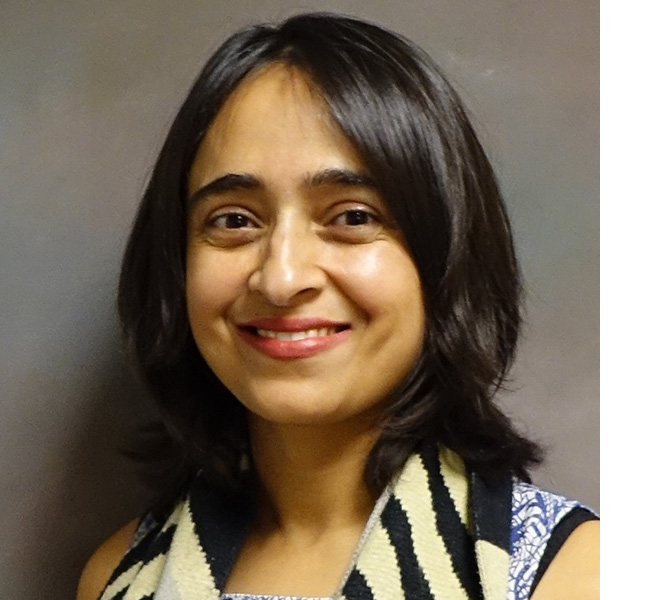
Somali Chaterji (pronounced shoh-MAH-lee CHA-ter-jee) is an Assistant Professor in Agricultural and Biological Engineering (ABE) and in the Elmore Family School of Electrical and Computer Engineering (ECE). Dr. Chaterji is also the founder and CEO of a blazing fast cloud computing company, KeyByte. Dr. Chaterji leads ICAN, the Innovatory of Cells and Neural Machines, at Purdue. She did her PhD in Biomedical Engineering (BME) from Purdue, winning the Chorafas Dissertation Award and the Future Faculty Fellowship, followed by a postdoc in UT Austin and then a Visiting Assistant Professor stint in Purdue Computer Science. She won the NSF CAREER award from the Computing Directorate (CISE, CNS) in January 2022. Her work has appeared at the top applied machine learning, computer systems, and computational genomics conferences and journals. She has received funding from NIH (R01), DOD (ARL), NSF (CISE-CNS, CAREER), NIFA, as well as private industries like Amazon and Adobe Research.
Experts
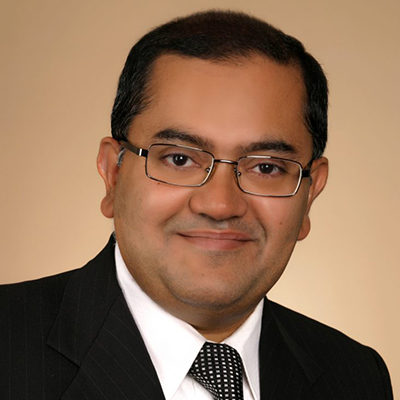
Samarjit Chakraborty
University of North Carolina
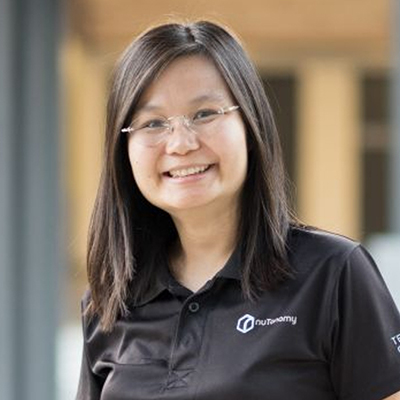
Tichakorn (Nok) Wongpiromsarn
Iowa State University

Luca Carlone
Massachusetts Institute of Technology
Agenda
| Speakers | Time (minutes) | Topic | |
| 1 | Intro by Somali Chaterji (Chair) | 9 | Also sub-topic #1 |
| 2 | Tichakorn (Nok) Wongpiromsarn | 9 | Sub-topic #3 |
| Questions | 3 | ||
| 3 | Eric Mazumdar | 9 | Sub-topic #5 |
| Questions | 3 | ||
| 4 | Suman Banerjee | 9 | Sub-topic #6 |
| Questions | 3 | ||
| BREAK | 9 | ||
| 5 | Saurabh Bagchi | 9 | Sub-topic #4 |
| Questions | 3 | ||
| 6 | Samarajit Chakraborty | 9 | Sub-topic #2 |
| Questions | 3 | ||
| 7 | Luca Carlone | 9 | Sub-topic #3 |
| Questions | 3 | ||
| Questions for all speakers | 10 | ||
| Report Out by Chair | 10 | ||
| Overhead (travel, switching cost) | 10 | ||
| TOTAL | 120 |
